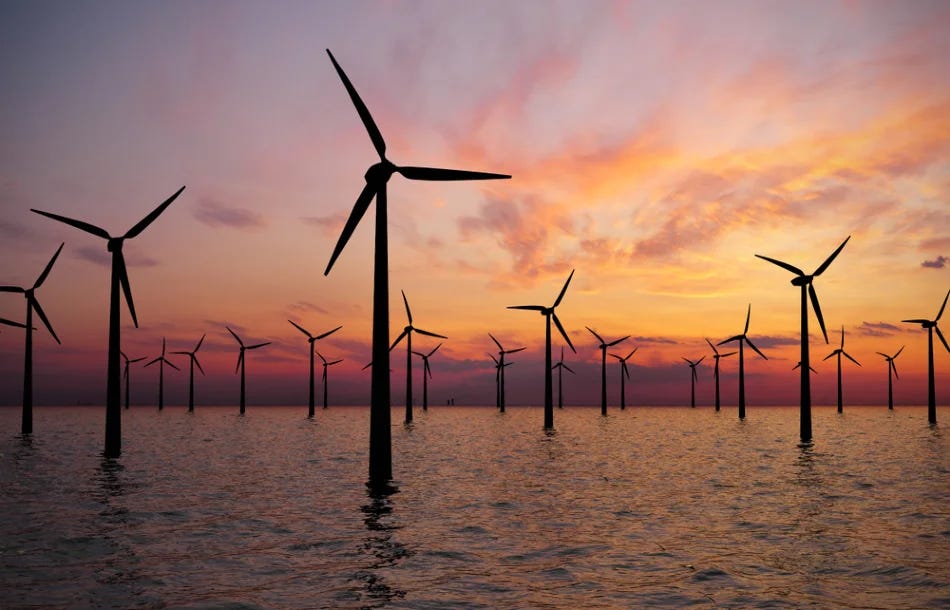Ocean wind farms are popping up all over the globe as part of the push for cleaner, more sustainable energy sources. These renewable energy giants are critical to reducing our reliance on fossil fuels and play an essential role in curbing climate change. But, like any emerging technology, ocean wind farms come with their own set of benefits and challenges. So let’s dive into this hot-button issue and figure out “what the tea is” - is it scalding hot when it comes to this tech, or is that just what people want you to think?
First off, what even are ocean wind farms?
You might’ve actually heard them referred to as another name: offshore wind farms. Regardless of what they’re called, simply put, they consist of large turbines placed in bodies of water — usually offshore, where wind speeds are stronger and more consistent than on land. These turbines work by harnessing the power of the wind through large, rotating blades. When the wind blows, it pushes the blades, causing them to spin. The spinning blades are connected to a shaft that turns a generator inside the turbine. The generator then converts the mechanical energy from the spinning blades into electrical energy. This electricity is transmitted through cables, either to nearby coastal power grids or, in some cases, to distant locations via underwater transmission lines.
Offshore turbines are typically larger and more powerful than their land-based counterparts due to the stronger and more consistent winds found at sea. And the technology is evolving to enable turbines to be placed even farther from shore in deeper waters, where they are less likely to interfere with shipping lanes, fishing grounds, and recreational areas.
So why are they a big deal?
Keep reading with a 7-day free trial
Subscribe to Márquez en las Profundidades to keep reading this post and get 7 days of free access to the full post archives.




